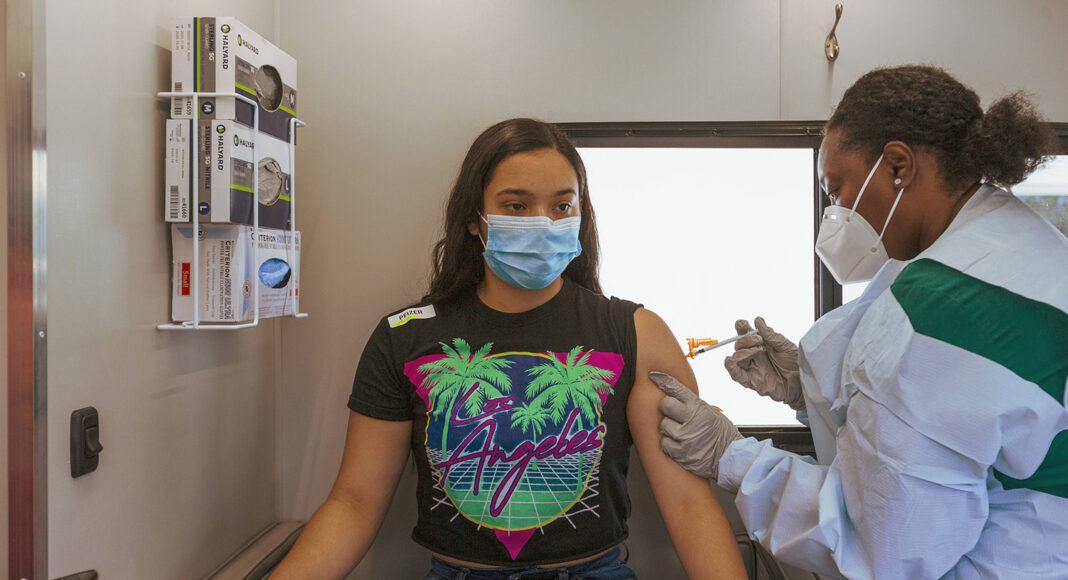By Sharon LaFraniere, The New York Times
Federal regulators Thursday authorized booster shots of the Pfizer-BioNTech coronavirus vaccine for 16- and 17-year-olds, six months after they received their second shot of that vaccine. The move clears the way for several million teenagers to receive an additional shot.
All adults have been eligible since Nov. 19 to receive a booster six months after their second shot of Pfizer or Moderna’s vaccines, or two months after a Johnson & Johnson shot. Nearly 50 million Americans — or one fourth of those fully vaccinated — have gotten the additional shots.
The Food and Drug Administration broadened Pfizer’s authorization to cover the younger age group on an emergency basis. The other two coronavirus vaccines, Moderna and Johnson & Johnson, are authorized for use only for adults.
The agency’s decision, which was expected, comes as an initial spate of laboratory tests have suggested that the new fast-spreading variant, omicron, seemed to dull the power of two doses of the Pfizer vaccine.
“Since we first authorized the vaccine, new evidence indicates that vaccine effectiveness against COVID-19 is waning after the second dose of the vaccine for all adults and for those in the 16- and 17-year-old age group,” said Dr. Peter Marks, who oversees the FDA’s vaccine division. A booster “will help provide continued protection against COVID-19 in this and older age groups,” he added.
Pfizer and BioNTech said Wednesday that tests with blood samples from people who had received only two doses showed much lower levels of virus-fighting antibodies against omicron than against an earlier version of the virus. Antibodies are the immune system’s first line of defense against the virus, and the results suggest that two doses may not be sufficient to protect against infection, officials from the companies said.
With a booster, the level of antibodies working to neutralize the omicron variant were comparable to those combating the original variant after two doses, the companies said.
Senior administration health officials have said omicron, which contains dozens of mutations never seen before, is even more reason for everyone eligible for a booster to get one. More than 200 million Americans — over 60% of the population — have been fully vaccinated.
Although the U.S. vaccination rate overall is still well behind that of some other countries, the discovery of omicron has driven many people to get shots, even as much remain unknown about the variant.
According to federal data, roughly 3 million 16- to 17-year-olds in the United States got their second shot of Pfizer at least six months ago and would be eligible for a third shot this month.
Said Dr. Ugur Sahin, the chief executive of BioNTech, Pfizer’s German partner: “In the current situation, it is important to offer everyone a booster, particularly against the background of the newly emerging variants such as omicron.” And Dr. Albert Bourla, the chief executive of Pfizer, called the expansion of booster shots “a critical milestone.”
Pfizer is supplying booster doses to the U.S. government under an agreement negotiated months ago.
“The companies do not expect that today’s news will impact the existing supply agreements in place with governments and international health organizations,” a statement released Thursday by Pfizer said.
This article originally appeared in The New York Times.












